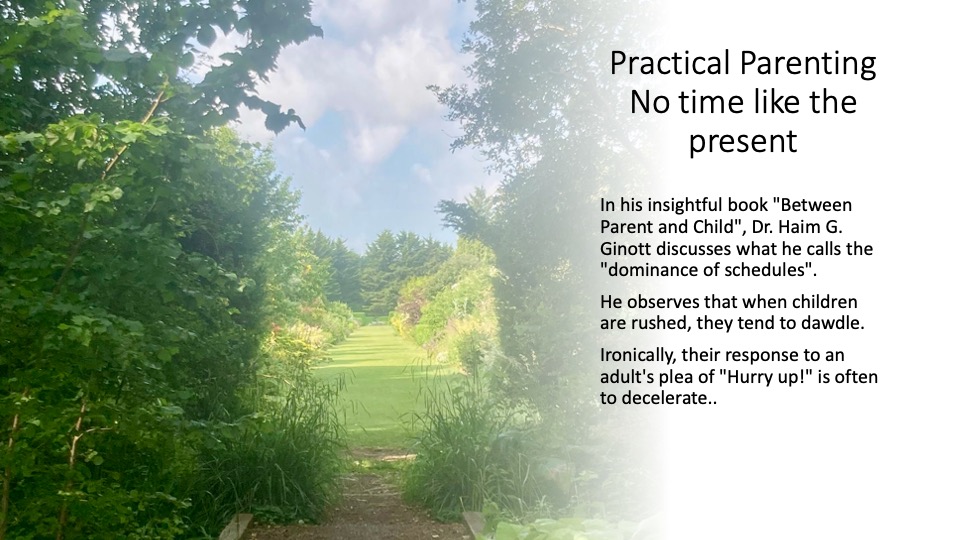
Practical Parenting – No time like the present
Some of the recurring difficulties we are hearing about and discussing in our classes are related to time.
We find ourselves saying: “I haven’t got time,” on a regular basis, and often it refers to not having time to spend with our children.
“It’s rush, rush, rush,” said one father, “from getting up, getting dressed, having breakfast and getting to school on time, it’s one big nightmare.”
Dr Haim G Ginott, in his excellent book entitled: “Between Parent and Child”, refers to the “tyranny of timetables” and says that, when children are hurried, they take their time.
It’s their reaction to the tyranny of timetables that are not theirs, he says.
A useful tip, rather than telling them to rush, is to give them realistic time limits, briefly stating what we expect and then leaving them with the challenge to be ready on time.
They often resist adults’ cry of ” Hurry up!” by slowing down.
For example, we might say: “The bus goes in 10 minutes,” or
“Breakfast will be in 5 minutes.” (Providing a clock might be useful!)
Far better, this, than constant nagging, which generally has no useful effect.
But the biggest concern being voiced regarding time is the one of not having time to spend with the children.
We can’t lengthen the 24-hour day, much as we would sometimes like to, but we can discover ways of slowing down ourselves by fully connecting with the NOW, rather than forever, in our heads, thinking about what’s gone before, or planning what’s going to happen next.
This “Being in the moment” is a way of grounding ourselves, just being aware of our presence NOW. aware of our feet on the floor and resting with the listening and the breathing.
It’s surprising how time seems to slow down when this is remembered, and by remembering it when we are with our children, we can connect and engage with them fully, really listening to them and thus spend quality time with them.
A few minutes of really connecting in this way with each child and sharing activities or conversation with them will be very rewarding. A child knows when you’re really with him, fully, just as he knows when you’re itching to move away to attend to something else.
So why not try this – just a few minutes of real attention with each child, as often as you can, and notice the difference?
Maybe we’ll then be able to drop the words “rush” and “hurry ” from our vocabulary forever.


